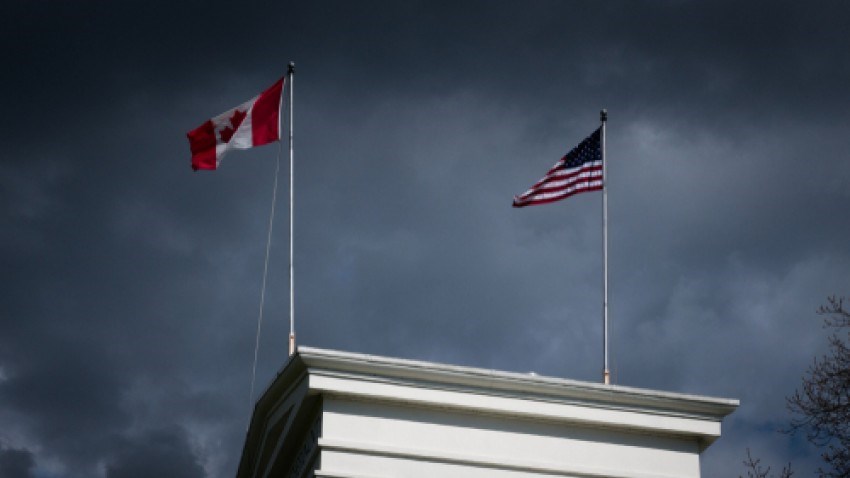Canada and the U.S. have agreed to extend restrictions on non-essential travel across their shared border another 30 days.
The current agreement was set to expire Thursday (May 21), however, Prime Minister Justin Trudeau confirmed Tuesday the two countries aren’t ready to loosen restrictions just yet.
“It was the right thing to do,” he said during his daily media briefing in which he also extended condolences to Snowbird Capt. Jenn Casey, who died in a crash Sunday in Kamloops.
“My thoughts and the thoughts of all Canadians are with the families of Capt. Casey, Capt. [Richard] MacDougall and the entire Snowbirds team. This has been a very difficult few weeks for members of the Canadian Armed Forces.”
Regarding the border restrictions, Trudeau said it’s imperative that Canadians returning to the country are properly followed up on and stay in isolation to prevent the further spread of COVID-19.
“We’re working closely with the provinces to ensure the arrival of people into Canada — even now — but certainly once we get to the point that non-essential travel picks up again in the coming months … we need to have strong measures in place and we’re looking at those closely,” he said outside his home in Ottawa.
The prime minister also announced the federal government is expanding eligibility of its business loan program.
The Canada Emergency Business Account allows banks to offer $40,000 loans guaranteed by government to eligible businesses that will come interest-free for the first year.
Under certain conditions, $10,000 of the loan will be forgivable.
Trudeau said eligibility is being expanded to businesses with sole ownerships, those that rely on contractors and family businesses that pay through dividends.
About 600,000 businesses have applied for the loan amid the pandemic.
The latest announcements from Ottawa come the same day much of B.C.’s economy begins restarting in earnest as provincial restrictions loosen for businesses such as restaurants.
On the West Coast, dining establishments will be collecting contact information from at least one patron at each table for 30 days in the event contact tracing is necessary.
Trudeau said the federal government is working with the provinces on developing a national framework for testing and contact tracing as more economies begin opening up again.
He said those two elements are “key” to a reopened Canadian economy.
“We need to make sure right across the country that we have a strong capacity to respond wherever there might be a resurgence or flare-up of COVID-19, and that means having significant resources at the availability of all regions and provinces,” Trudeau said.
“We’re going to be moving forward on ramping up massively our testing and our contact tracing.”
Meanwhile, former U.S. vice-president Joe Biden, the presumptive Democratic nominee for the Americans’ 2020 presidential elections, said Monday he would cancel the Keystone XL pipeline project if he were elected.
The Keystone XL pipeline runs from Alberta and Saskatchewan and into the U.S.
Trudeau said he would work with any U.S. government and advocate on behalf of the pipeline’s economic importance to both countries.



